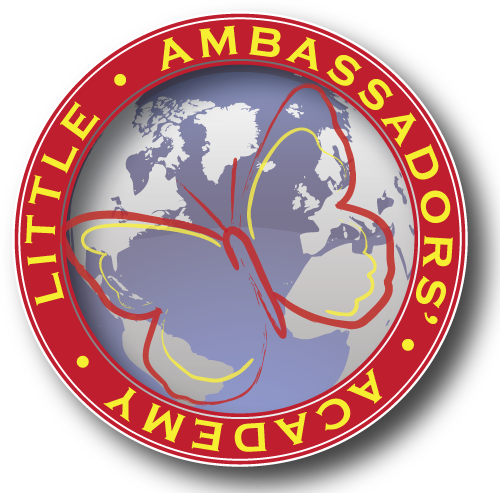preschool
Ages 3-4
Children at the age of three become much more aware of the world around them and are eager to explore the way things work.
At this age they are making the most connections in their brain than at any other age. At this age it is extremely important to have a developmentally stimulating curriculum which is divided into eleven major learning objectives that touch on every aspect of their social, emotional, cognitive, linguistic and physical development.
Language and Literacy: Your child will continue to learn and master the alphabet and its corresponding sounds which is vital to the foundation of their pre-literacy skills. They will begin to develop their writing skills by printing the alphabet, numbers (1-20), and their names.
Cognitive Development: At the age of three, children are constantly trying to make sense of the world around them; the who, what, where, when, and most importantly WHY? They will begin understanding basic concepts such as: comparing, classifying, recognizing and creating patterns and one to one correspondence.
Mathematics: Basic math skills will continue to be developed by identifying numbers 1-20, counting 20 objects, as well as establishing basic problem-solving and evaluation skills. We will also begin to follow and understand calendar concepts, basic money concepts, measurement and an awareness of time concepts.
Science: Your child’s scientific curiosity will be piqued during Preschool through experimentation in a variety of ways. We will explore cause and effect, participate in simple experiments, learn about life cycles and other elements of Science.
Foreign Language: Children who are exposed to a second language show signs of advanced cognitive skills including problem solving, critical thinking, memory, concentration, and listening. The main principles of our program include an immersion approach through interactive lessons incorporating songs, dance and games. The objective of our program is to create a foundation for further foreign language learning and cultural appreciation. Our instruction is given in the target language 95-100% of the time.
Fine Motor Skills: During this preschool year, your child’s hand-eye coordination improves greatly and the muscle control in their hands will now allow them to hold their pencil properly for writing and drawing skills and proper scissor control. These improved fine motor skills will be practiced with lacing, buttoning, zippering and snapping, and using other classroom manipulatives.
Gross Motor Skills: The most energy you will ever have in your life is at the age of three. That is why we feel it is extremely important to meet the physical needs of your child through play and physical education. Their coordination will improve with better balance and body control. Our exercise program, The Butterfly Effect, will include activities with lots of running, jumping, throwing, kicking and various other gross motor skills.
Social Development: It is important that your child’s communication skills grow from physical interactions to verbal communication during this preschool year. This skill is most important when playing with others in a group setting. They will begin to recognize and express other’s emotions and label them. Being able to use their words and share toys is a major milestone in this Preschool year.
Personal Development: This preschool year, your child’s confidence to do things on their own will be encouraged and acknowledged in the classroom. Using words to express their emotions, practicing manners and cleaning up after themselves will help them in their personal development. They will also learn self-soothing techniques that will help them with transitions and adapting to changes in their routine.
Preschool Schedule
7:30-8:00: Before Care, Arrivals, Breakfast
8:00-8:30: Free Play
8:30-9:00: Small Group Activities
9:00-9:30: Snack
9:30-10:00: Circle Time
10:00-10:30: Large Group Activity
10:30-11:00: Small Group Activity
11:00-11:30: Outside
11:30-12:30: Lunch
12:30-2:30: Nap Time
2:30-3:00: Snack
3:00-3:30: Small Group Activities
3:30-4:15: Large Group Activity
4:15-5:15: Outside
5:15-6:00: Closing Group Activity/Independent Play

